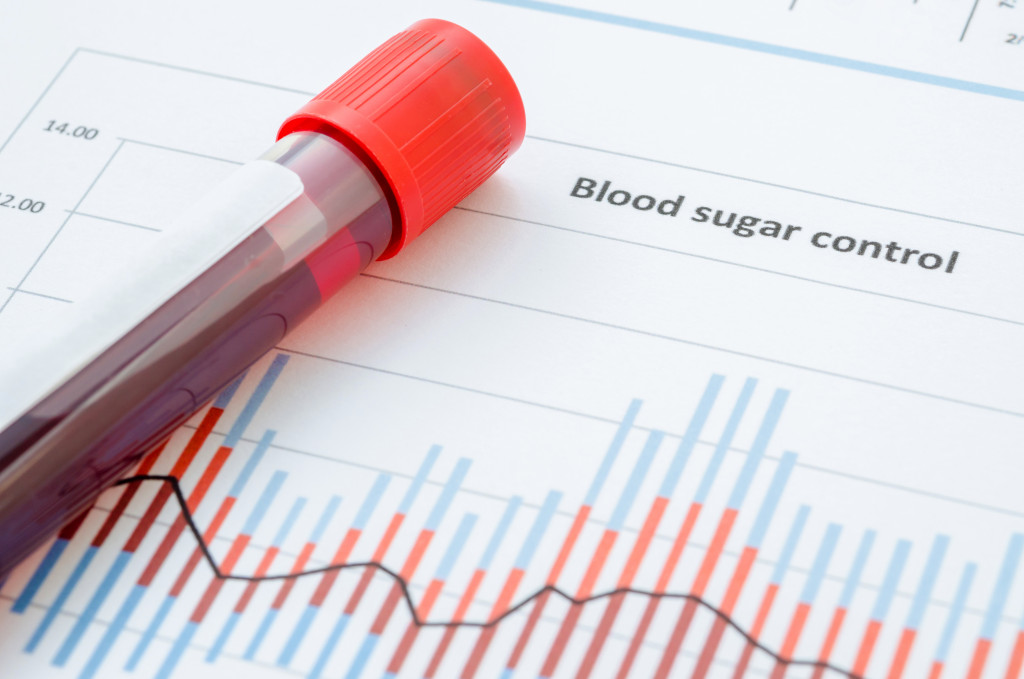- Chronic disease management is aided by advancements in healthcare technology, easing the tracking of health metrics.
- Regular blood pressure monitoring can identify triggers and help tailor effective treatment plans.
- Glucose monitoring apps for diabetes patients can track blood sugar levels and influence disease management.
- Weight management, including consistent measurements, BMI tracking, and waist circumference, is crucial for overall health.
Living with a chronic illness is a challenging experience, and navigating the management and treatment of such conditions can be an ongoing process. Fortunately, advancements in healthcare technology are making it easier for individuals to monitor their health metrics and make informed decisions about their disease management. This article will explore the impact of tracking health metrics on chronic disease management.
Blood Pressure Monitoring
High blood pressure is a common health issue and can lead to serious conditions such as heart disease and stroke. Tracking your blood pressure regularly can help you understand your condition, identify triggers that increase your blood pressure, and work with your healthcare provider to develop an effective treatment plan. Many blood pressure monitors can be used at home, making it easy to keep track of your levels and report them back to your provider. Here are some tips to follow:
Keep a Record of Your Readings
Maintaining a detailed log of your blood pressure readings is crucial. Ensure to record the date, time, and any significant factors such as stress, meal times, or physical activity around the time of each reading. This will assist in identifying patterns or triggers, providing valuable insights to your healthcare provider. Sharing this information can guide them in tailoring an effective treatment plan specifically suited to their needs.
Follow Your Provider’s Instructions
Adhering to your healthcare provider’s instructions is essential in successfully managing your blood pressure. They may advise you on when and how often to take readings, what targets to aim for, and any lifestyle changes that may help. This could include dietary changes, exercise regimens, or stress management techniques. Regular check-ups and open communication with your healthcare provider also allow adjustments to your plan as necessary, ensuring the most effective treatment for your unique situation.
Share the Data With Your Healthcare Team
Keeping an open communication line with your healthcare team is an essential part of managing your blood pressure effectively. Regularly share your logged blood pressure readings with them. This data provides them with a comprehensive view of your health status over time, enabling them to make precise adjustments to your treatment plan if necessary.

Glucose Monitoring Apps
For individuals with diabetes, an efficient glucose monitoring app can be a game-changer. These apps offer a convenient way to keep track of your blood sugar levels and identify trends over time.
They can log your food intake, exercise, medication, and more, providing a comprehensive look at how different factors affect your glucose levels. This data, when shared with your healthcare provider, can help tailor a more effective disease management plan.
In most cases, these apps also offer a feature to set reminders for medication, insulin injections, or blood sugar readings, helping individuals stay on track with their treatment plans.

Weight Management
Maintaining a healthy weight is vital for overall health and well-being. For individuals with chronic diseases like diabetes and heart disease, monitoring weight can be critical to their management plan. Keeping track of weight can help healthcare providers adjust medications and suggest lifestyle modifications that can improve health outcomes. Here are some important factors to take into account:
Consistency in Measurement
When monitoring weight, it is crucial to use the same scale and take measurements at the same time each day. Weight can fluctuate throughout the day due to factors like food intake, water retention, or physical activity. Keeping track of consistent readings allows for a more accurate understanding of overall trends over time.
Body Mass Index (BMI)
The BMI is a measure of body fat based on height and weight, and it can be an essential tool in understanding your overall health. A high BMI can put individuals at risk for chronic diseases such as heart disease and diabetes. Tracking changes in BMI over time can help identify potential health risks and prompt necessary lifestyle modifications to improve overall health outcomes.
Waist Circumference
Along with BMI, waist circumference is another useful measurement to track when managing chronic diseases. Excess fat around the waist can increase the risk of heart disease, diabetes, and other health issues. Keeping track of waist measurements over time can help identify any changes and prompt lifestyle adjustments if necessary.
Effective chronic disease management requires a collaborative effort between individuals and healthcare providers. Tracking health metrics is one-way individuals can take an active role in their healthcare journey. By understanding and monitoring key health indicators, individuals can make informed decisions about their care and improve their overall health outcomes. Talk to your healthcare provider today to learn more about which health metrics are important for your chronic disease management plan.
